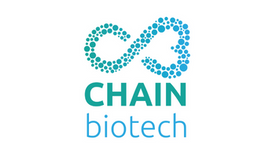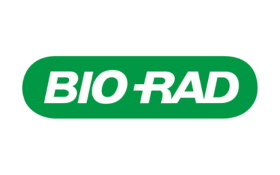CHAIN Biotech announces collaboration with the prestigious German Cancer Research Center DKFZ for the development of a novel oncology vaccine

Nottingham- UK – 11th April 2024- FOR IMMEDIATE RELEASE
CHAIN Biotechnology Ltd (‘CHAIN’ or ‘the Company’) announces it has started a collaboration with the DKFZ, who have developed an orthotopic HPV tumour model using mice expressing human MHC immune proteins.
The program forms part of CHAIN’s previously reported expansion into immune oncology therapeutics, utilising its novel Clostridium Assisted Drug Delivery (CADD) live spore system for thermostable oral delivery of therapeutic cancer vaccines.
There is a significant unmet medical need to treat cancers resulting from HPV infections. Cervical cancers are the 4th most common cancer in women, accounting for 662,3001 new cases every year, over 95% of which are associated with HPV infection. Other types of cancer, such as anal cancer or oropharyngeal cancers, are also caused by HPV infections. Treatment of cervical cancer typically consists of surgery and chemoradiotherapy. Currently, the only vaccines available for HPV are prophylactic, and therefore are not effective in the treatment of these cancers. Subsequently, CHAIN and the DKFZ will work together to harness their extensive research and expert knowledge of HPV-related malignancies to design and test new treatments for HPV-related cancers. CHAIN will engineer a range of new HPV vaccine candidates in their proprietary CADD system for the DKFZ to test in their in vitro cell-based assays and in vivo mouse models of HPV malignancies.
CHAIN’s CADD platform uses proprietary, modified strains of Clostridium, a key component of the healthy human microbiome. The strains are administered orally and are engineered to express therapeutic payloads in the colon together with naturally occurring beneficial metabolites. Expression of the antigens helps to elicit a mucosal and systemic immune response, which form an important part of how the body can combat HPV-related malignancies, which typically arise at mucosal sites. The collaborative project with the DKFZ will test CADD-HPV cancer vaccines in orthotopic tumour models, i.e. tumours located in the same anatomical locations as HPV-mediated cancers arise in humans, using mice with human MHC genes.
Dr Steve Emery, CSO at CHAIN, said:
“CHAIN is delighted to be working with the DKFZ. By combining our respective technical knowledge and expertise, we will be able to accelerate the development of novel therapeutic vaccines, for treating HPV-related cancers. HPV-related cancers are one of the world’s most prevalent cancers with no currently approved therapies that are designed to specifically target these malignancies. This collaboration will enable CHAIN to rapidly test therapeutic candidates using our proprietary oral antigen delivery system (CADD) and, together with the DKFZ, further explore the mechanism of action and efficacy in transgenic animal models. The DKFZ has developed animal tumour models for HPV cancers, which are world leading with respect to their relationship to the human immune system and thus provide excellent potential for translation to a clinical scenario.”
Dr Angelika Riemer, head of the Division of Immunotherapy and Immunoprevention at the DKFZ, said:
“It is the overarching goal of my research group to develop an efficient therapeutic HPV vaccine. We have defined and validated target epitopes that are bona fide present on human cancer cells, and invested quite some effort in establishing our orthotopic, HPV-driven murine tumour models. The mucosal location and the fact that these MHC-humanized mice present and recognize “human” epitopes promises much more translationally relevant results than the use of previous murine models.
I am very much looking forward to be able to co-develop and test constructs based on CHAIN’s CADD delivery system. Through the oral delivery, mucosal immunity is expected to be triggered, which is of special importance for eradicating mucosally located tumours. Another aspect which is particularly appealing to me is the fact that the spores are heat-stable. The major burden of HPV-mediated disease is carried by LMICs. In these countries, both maintaining of a cold chain and repetitive invasive delivery, such as through injections, can be challenging. The CADD system circumvents both of these issues.”
- https://gco.iarc.who.int/media/globocan/factsheets/cancers/23-cervix-uteri-fact-sheet.pdf
About the DKFZ
The German Cancer Research Center (Deutsches Krebsforschungszentrum, DKFZ) is the largest biomedical research institute in Germany, with over 100 divisions investigating the mechanisms and risk factors behind cancer, and researching innovative strategies to prevent and treat it. Researchers at the DKFZ have an accomplished history of scientific merit, being awarded both the Nobel Prize in Medicine and the Nobel Prize in Chemistry over the last two decades.
For more information, please visit: https://www.dkfz.de/en/index.html
About CHAIN Biotech
CHAIN Biotechnology is an immune-oncology therapeutics company based at MediCity Nottingham. CHAIN develops oral vaccine immuno-therapies targeting the lower gastrointestinal tract with several therapeutic candidates in pre-clinical development.
CHAIN’s Clostridium Assisted Drug Delivery (CADD) technology is based on a single, but highly effective, Clostridium bacterial strain that is engineered to deliver a specific therapeutic modality, whilst also secreting metabolites that play key roles in gut and immune system homeostasis. The engineered strains produce the therapeutics in situ during growth in the lower gastrointestinal tract, impacting on the systemic and mucosal immune system.
The CADD platform supports oral drug delivery that is targeted and controllable. In addition, the live biotherapeutics can be manufactured easily and cost-effectively and are highly stable, requiring no cold chain. The technology overcomes many of the challenges associated with drug delivery and vaccination.
For more information, please visit: https://www.chainbiotech.com






